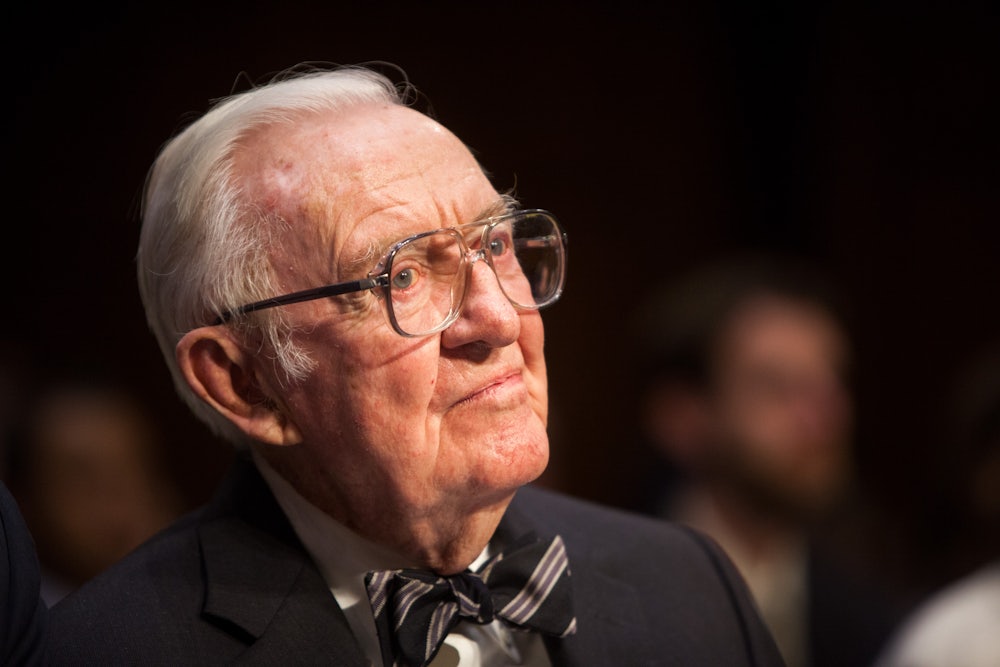The Palm Beach Post’s Lulu Ramadan reported that Stevens told a small crowd at an event in Florida that the beleaguered Supreme Court nominee had disqualified himself with his performance at last week’s Senate hearing.
Stevens said he once thought Kavanaugh “had the qualifications” to be a Supreme Court justice and even lauded Kavanaugh in one of his books for a ruling on political contributions. “His performance in the hearings changed my mind.” https://t.co/6XWBJjWWxS
— Lulu Ramadan (@luluramadan) October 4, 2018
Stevens is hardly alone in that conclusion. His remarks are still an extraordinary step for a Supreme Court justice to take, even in retirement. Though the justices often disagree with one another in private, they typically maintain a united front in public and virtually never offer even indirect criticism of colleagues on the record. (Stevens and Sandra Day O’Connor did criticize the Senate’s handling of the vacancy left by Antonin Scalia’s death in 2016.)
Stevens’s remarks follow an unprecedented level of opposition to Kavanaugh’s confirmation from the American legal community, citing both the sexual assault allegations against him and his partisan performance last week. An open letter criticizing Kavanaugh’s aggression and injudicious temperament during the hearing garnered the signatures of more than 1,700 law professors from across the country by Thursday afternoon. The American Bar Association also made a rare intervention by urging senators to reopen the FBI’s background check process after the hearing.
It’s unlikely that Stevens’s critique will carry great weight among Republican senators. Though Stevens himself once identified as a Republican and was appointed to the high court by Gerald Ford, he ended his judicial career as the leader of the Supreme Court’s liberal wing as the GOP moved further to the right. He also drew conservatives’ wrath earlier this year by publishing an op-ed calling for the Second Amendment to be repealed after a series of school shootings.
